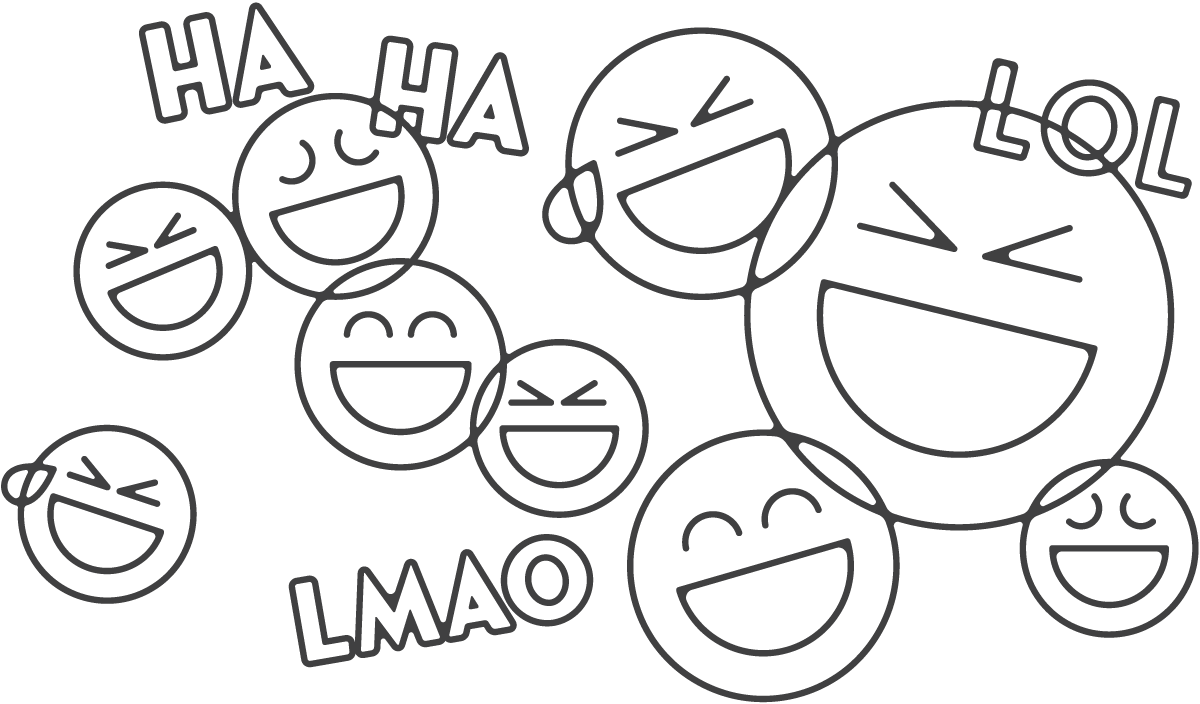Humor is one of those things that humans just love. It not only makes the funny person seem more confident but more appealing as well. We feel connected to them and they seem more approachable because humor is typical of a more fun-loving, relaxed person or environment.
We enjoy a good laugh with a friend. Even laughter itself is a bit of a “personal” activity that we show to select people. We don’t walk around laughing in front of strangers or usually laughing with them, but when in a comedy club or a funny movie and we find ourselves laughing in unison with strangers. There is a slight bonding experience that happens through humor.
Laughter is the Sound of Comprehension
Comedians, writers, and speakers have all discovered that laughter is unique in that it is an audible gesture of comprehension. Just as it is universal response that all cultures express, laughter is a sign of understanding. When we laugh at a joke or a story, we are acknowledging we “get it” or that we are agreeing and sharing in the comradery.
It’s a bit of an unwritten rule that we socially understand. So intuitively, we know that when we laugh, we are approving and/or agreeing with. This is why you shouldn’t just flippantly laugh at bad jokes your friend says unless you feel the same way. As you can see, laughter holds an important role in our social economy. It also is a way for us to show a side of ourselves and be open — which drives us to further connect with those around us or the ones making us laugh.

Considering these things, it makes sense why a lot of brands will pull out a funny ad here and there — especially around certain sports. For decades, humor has proven extremely effective as a marketing tactic. It gets attention, resonates, and is very memorable. Heck, it can even make us like a brand because we have been shown a funny side of it!
From the brand’s perspective, it’s a brilliant way to capture attention and earn some love from an audience. It also is a clever way to get buyers to subconsciously align and agree with you. They laugh and acknowledge your message while also subconsciously agreeing with it. For many marketers, this appears to be like shooting fish in a barrel… however humor is not a “one size fits all” solution for brands.
Joke Responsibly
As effective as humor is for brands, it should only be viewed as a marketing tactic that can support and complement a brand’s strategy. Depending on the position of the business is the market, the brand can have its strategy be humorous. This means some funny messaging and advertisements would fit nicely and help support the deliberate position in the market. A great example of this is when Old Spice started repositioning to be a more humorous and playful brand. They developed a fresh brand strategy that focused on having a strong personality that resonated with their audience. This meant introducing funny ads that appealed to females who wanted their man to smell nice while also making men chuckle. It is fun, energetic and just doesn’t take itself seriously. This in contrast to the Old Spice our grandfathers’ knew that was the classic scent of an elegant, yet masculine boatsman that had a thematic sailor whistle that most consumers can recall.
As you can see, humor is best applied when it aligns with the brand as a whole. It would be awkward for Prada or Blue Shield to roll out campaigns focused on humor. As off-putting as it may be, this does not mean it’s impossible for a business in those sectors to have humor as part of its brand strategy. Liquid Death successfully implemented a bold personality with hilarious ads, messaging, and collaborations in a rather stagnant water market. The fresh approach is refreshing and a splash of cold water to the face of the market and competition.
When humor is applied in harmony with the brand strategy then it works like magic and you’ll be laughing all the way to the bank. When humor is used as a tactic and desperate attempt by a brand, it can just feel forced and distasteful. Ultimately, your brand’s strategy should bring clarity to the personality of your brand. This takes into consideration your position in the market, the offering you sell, and the state of your audience. Understanding these things is like “reading the room” and determining when it is appropriate to joke. And if the humor isn’t effective or falls flat, using humor with your brand could have a reverse effect on your audience. That being said, sometimes it is appropriate to not joke at all and to not be something that you’re not. The power of humor should only be utilized if that is part of your brand’s personality and resonated with your audience.

